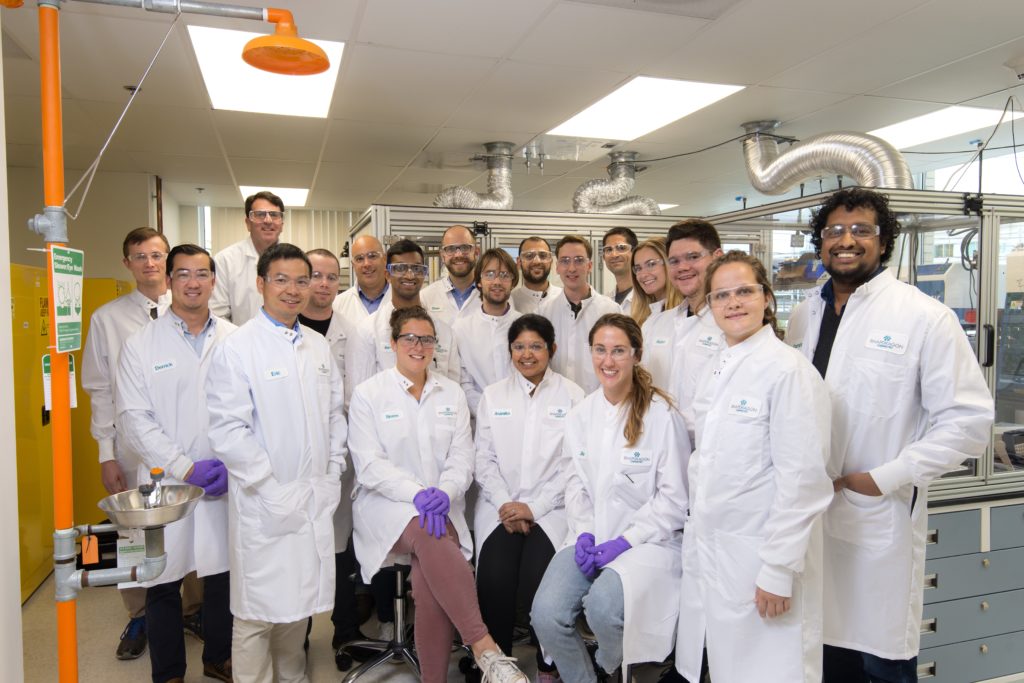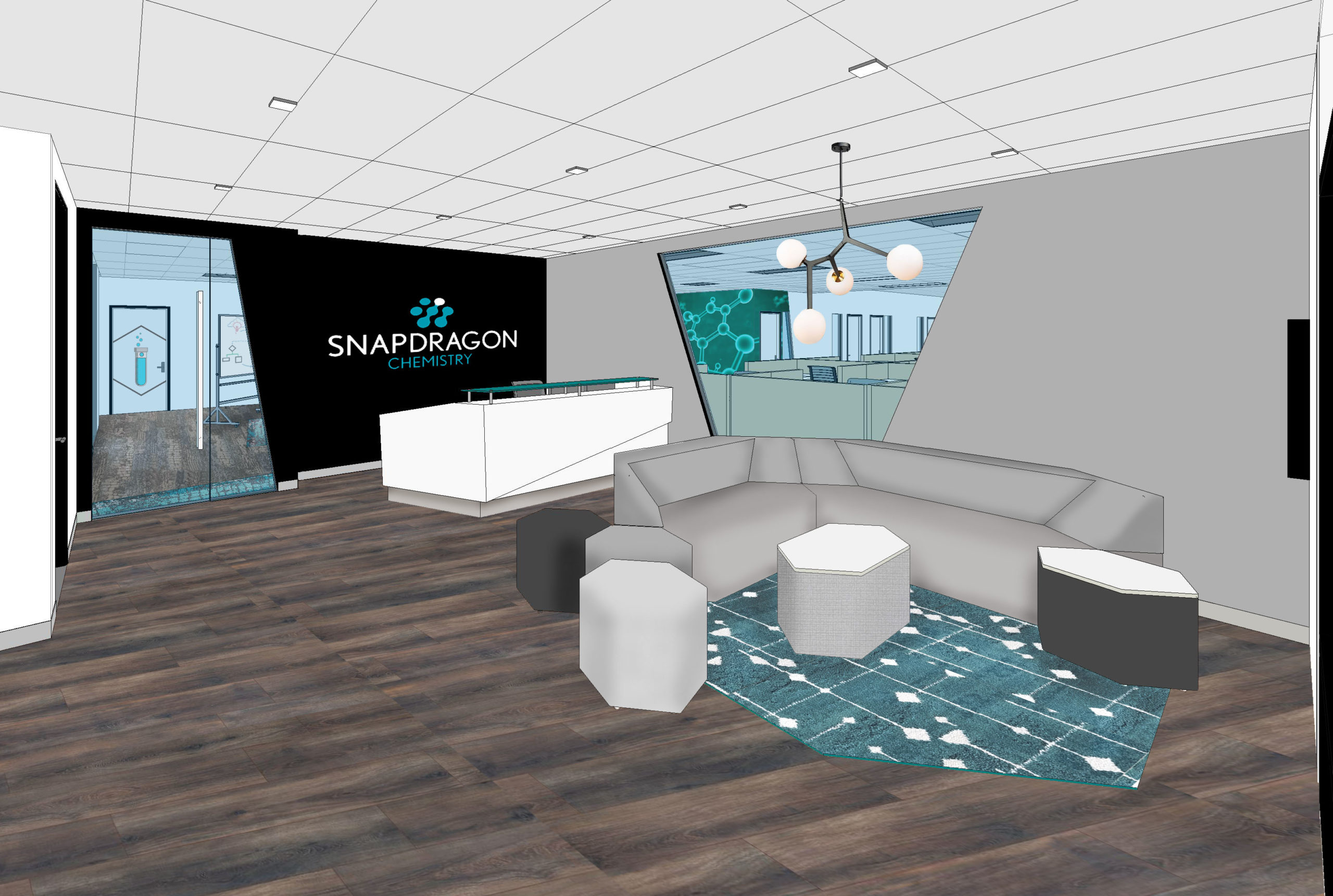The team at Snapdragon Chemistry has followed the shifting paradigms of the life sciences sector and manufacturing since its founding. The Waltham-based contract research organization, founded in 2014, designs manufacturing processes for clinical and commercial stage small molecule drug substances using advanced continuous manufacturing technology. Continuous manufacturing technology is emerging as an important tool in pharmaceutical manufacturing with the potential to reduce cost, ensure supply, improve safety, environmental stewardship, and solve technical challenges.
In its early days, the company understood the value of having chemists, engineers, and scientists working closely together. As the entire industry was realizing the benefit of breaking down silos, Snapdragon charted its growth trajectory by leveraging all pieces of the Massachusetts life sciences ecosystem. The MLSC has been proud to support this growth through the Center’s early-stage programming, its Internship Challenge, and Tax Incentive program.
Most recently, Snapdragon announced in March of this year a large-scale expansion of its Waltham facility, with a state-of-the-art good manufacturing practices (GMP) facility opening this fall, located down the street from the company’s existing headquarters. The new 51,000 square foot facility will enable Snapdragon to manufacture experimental pharmaceutical products for human clinical trials, building off the research and development done at its headquarters. Across its entire enterprise, Snapdragon plans to add at least 50 jobs, more than doubling the company’s current workforce of 35 FTEs in the coming years.
“We’re launching this facility in Massachusetts, because we believe manufacturing needs to be co-located where the technology and clinical trials are going to be developed to leverage all the innovation that is possible,” said Snapdragon’s President and CEO Matthew Bio. “It’s about the patient. If you really want to serve patients, if you want to get to those clinical trials fast, and find out if you have a useful therapeutic, then in the end, it is about getting those drugs to patients faster.”
In 2020, the MLSC awarded Snapdragon a Tax Incentive award for the creation of 10 jobs. Earlier on in 2016, Snapdragon received a $200,000 grant from the MLSC’s MassRamp program to support its research into the use of flow chemistry, online analysis, algorithms and IoT to automate the development chemical synthesis.
“That initial funding, in combination with a grant we received from the National Science Foundation, really allowed us to begin this journey,” said Matthew. “It enabled us to develop what is our current lab operating system and gather the essential data that informed our processes. The timing was essential as it was when we were very early-stage with just a few of us in the lab.”
Snapdragon also utilizes the MLSC’s Internship Challenge, which enhances the talent pipeline for the Massachusetts life sciences industry by creating hundreds of new internship opportunities each year for college students and recent graduates interested in life sciences careers.

“Interns allowed us to experiment with roles we didn’t yet know if we were ready to hire for,” said Matthew. “It’s hard to put a value on being able to bring on talent in an area, such as mechanical engineering, and figure out the fit for your organization.”
The Internship Challenge connects employers like Snapdragon with prospective interns through an online platform and enables eligible companies to pay their interns for up to twelve weeks by subsidizing intern wages. Like many companies, Snapdragon has also been able to bring on the interns post-graduation for full-time roles. This includes Northeastern University alumni Mikhail Goncharuk and Tim Doherty, who after interning now have full-time roles as Mechanical Engineers for Snapdragon.
The company is continuing to look toward creating new jobs for chemists, chemical manufacturing engineers, and programmers at all levels to meet their business demands. Even during the pandemic, Snapdragon leveraged opportunities as mRNA came onto the scene through the lens of supply chain challenges. This led to the company forming a partnership with the Biomedical Advanced Research and Development Authority (BARDA) and securing a $1.5 million grant from the U.S. Defense Advanced Research Project Agency (DARPA) to develop continuous technology for U.S.-based manufacturing.
Snapdragon’s team has also greatly benefited from its location in Waltham finding affordability in accessing and expanding its space, but also remaining close to the talent found at universities and colleges and clients located in Cambridge and Boston.
“You cannot really overstate the importance of having an ecosystem in which you’re able to take advantage of not just academic institutions and clients in close proximity, but also other small companies to partner with,” said Matthew, who noted they’ve found local glass blowers, machinists, electrical contractors, and even micro-robotics welders to partner with. “It’s amazing what you can find here.”



